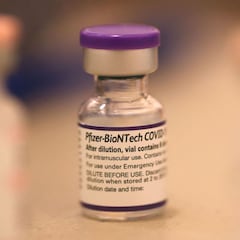Can I mix covid-19 booster shots?
The FDA has reportedly allowed healthcare providers to administer a mix of different vaccines in booster shots if patients choose to switch vaccines.

Members of the Food and Drug Administration decided at a meeting Tuesday that booster shots could be administered from three different vaccines: Pfizer, Moderna, and Johnson.
Moreover, they also made special emphasis on the fact that following the preliminary data suggesting mix as a way of making immunization more effective, the FDA will allow health care providers to administer different vaccines during booster shots.
CDC to issue further guidance Thursday
Despite, the FDA recommendation to stick to your previous vaccination brand for booster shots, Americans are now allowed to freely choose if they want to get different shots when they are eligible for the boosters.
Therefore, following the new rules, CDC is expected to issue guidance Thursday on the best way to mix vaccine brands.
Federal regulators are expected to authorize the mixing and matching of COVID-19 booster shots this week in an effort to provide flexibility for those seeking to maintain protection against the coronavirus. https://t.co/Tp7Z5L93I5
— ABC13 Houston (@abc13houston) October 20, 2021
Mix-and-match, safe and effective
According to previous studies carried out in Europe, following how quickly AstraZeneca was ruled out, Heterologous priming, most commonly known as mixing vaccines, has been proved not only to be safe but to be effective and beneficial in some cases.
AstraZeneca vaccines were ruled out in Europe before the first AstraZeneca vaccinated people could get their second dose, therefore, it become clear that the only way out to get those people vaccinated was providing them with a second dose of Pfizer.
US drug regulator to announce support for individuals receiving a different Covid-19 vaccine for their booster shot than their original jab. It was safe to mix boosters & revved up immune response. Mixing boosters provided a good response to Delta variant. https://t.co/75Am0QV7RQ
— Linda Yueh (@lindayueh) October 20, 2021
Both vaccines, AstraZeneca and Pfizer are totally different, but when researchers had a closer look at the results, they found out that the mix of both was even more effective than AstraZeneca and Pfizer alone.
Related stories

Are third vaccine booster shots for covid-19 necessary?

When is the right time to get a flu shot and covid booster vaccine?
Another study was carried out in Britain to ensure mixing was safe and secure, and after holding the trial involving 830 people, they found no evidence that heterologous priming caused any dangerous side effects.
In conclusion, studies determined that mixing vaccines could not only keep you safer but provide an alternative in case supplies of a certain vaccine run out.
